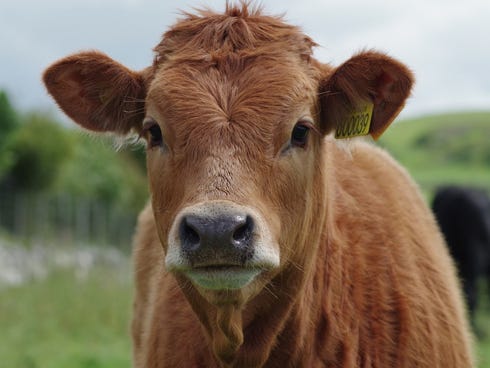
Hurricane season begins June 1 and runs through Nov. 30. Researchers at Colorado State University and North Carolina State University predict an active season in 2016.
In fact, we have already had a hurricane this year. A rare occurrence, Hurricane Alex, formed in January, affecting Bermuda and the Azores.
Here are a few tips to prepare your livestock for a possible storm:
●Livestock are safer in a large pasture free of debris. Barns can easily fail during a storm, leaving animals injured, trapped or dead. Perimeter fences should be sturdy — preferably woven wire — and not electric in case of power outages.
●Livestock should have enough room to escape fallen power lines, trees and debris.
●If you have livestock confined to an area smaller than 5 acres, you may consider evacuating with your livestock.
●If you decide to evacuate, make plans early. Plan your evacuation route and know where you are going. Also, pack an evacuation kit that contains necessary health papers, handling supplies and first-aid supplies. Plan early and leave early. It will take you longer to evacuate with your livestock.
●If you decide to stay, have plenty of supplies such as hay, feed and water stored in a safe place. Depending on the storm’s severity, it is sometimes difficult to transport feed and hay to the area.
Planning ahead always helps during and after a storm. Make sure to have a first-aid kit for your livestock and your family.
For more information about preparing for a hurricane with livestock or for livestock shelters in your area, contact your local extension agent.
Jennifer Bearden is an agent at the University of Florida's Institute of Food and Agricultural Sciences Extension office in Crestview.
—
BEFORE A STORM COMES…
●Have a photo of you and your animal on hand, along with important records and papers
●Know, in advance, pet-friendly hotels or equine shelters where you can stay
●Prepare an evacuation route
●Set up and store a first aid kit
●Pack food, water and medications
●Have a leash, pet carriers and halters on hand
●Have a photo of you and your animal on hand, along with important records and papers
●Know, in advance, pet-friendly hotels or equine shelters where you can stay
●Prepare an evacuation route
●Set up and store a first aid kit
●Pack food, water and medications
●Have a leash, pet carriers and halters on hand
BEFORE A STORM COMES…
This article originally appeared on Crestview News Bulletin: BEARDEN: Livestock owners, prepare for an active hurricane season
